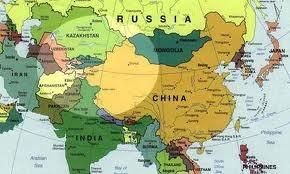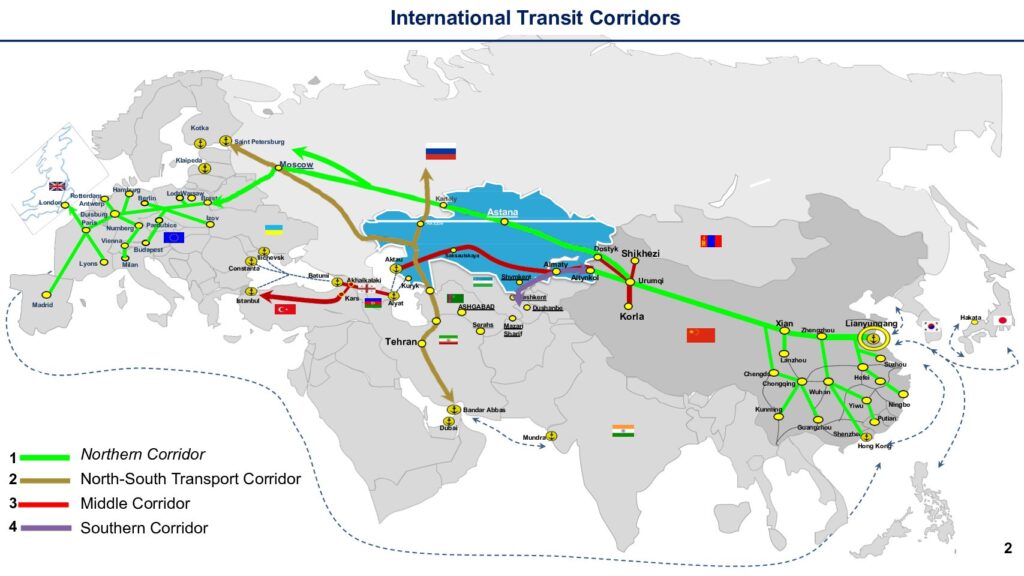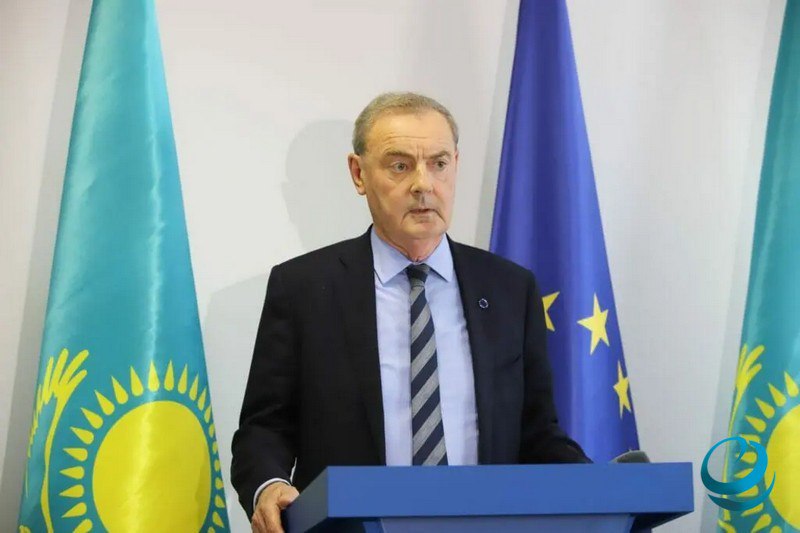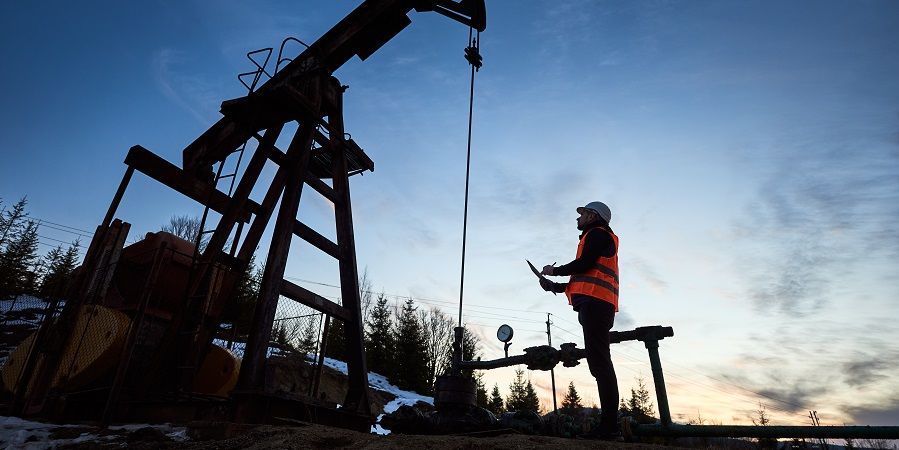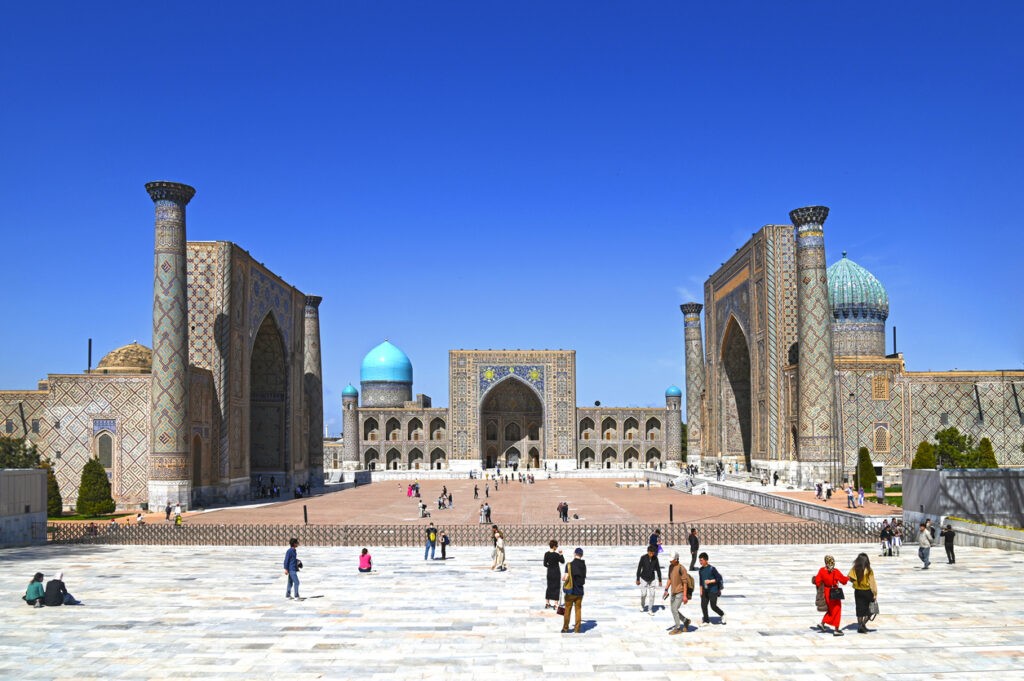BISHKEK (TCA) — The Times of Central Asia presents to its readers Stratfor’s Global Intelligence, a weekly review of the most important events that happened in the world — from Europe to Middle East to Russia to Central Asia to Afghanistan to China and the Americas.
The Week That Was
Saudi Arabia Looks Beyond Oil
Saudi Deputy Crown Prince Mohammed bin Salman’s post-oil vision for Saudi Arabia was approved by the Cabinet and unveiled to the public this week. The highly ambitious Vision 2030 is designed to end Saudi oil dependence by 2020 and raise non-oil exports to 50 percent of GDP by 2030. Most Saudis reacted positively to the plan that broadly calls for diversification, a reduction in unemployment, greater transparency and enlarging the private sector in areas like petrochemicals, mining, tourism and defense. The kingdom seems to be sticking to a plan to sell no more than 5 percent of Saudi Arabian Oil Co. (Aramco) in an initial public offering, perhaps as early as next year. The remainder would then be transferred to the Public Investment Fund, which would then become the world’s largest sovereign wealth fund.
However, a plan is only as good as its implementation. This is why last May the young prince was appointed head of a 10-member Supreme Council for Aramco and chair of the government’s Council for Economic and Development Affairs to oversee the reforms. Whether he can actually pull this off remains in question. Parallel to the Vision 2030 unveiling was the announcement that King Salman had fired the minister of water and electricity, Abdullah bin Abdul Rahman Al Hussein. Al Hussein was in charge of implementing unpopular price hikes for water and electricity as part of an effort to decrease consumption. Though his dismissal was designed to show the Saudi people that their royals are sensitive to their pain, it also does not bode well for Saudi Arabia’s credibility in following through with more painful structural reforms.
German Euroskeptics Branch Out
A recent geopolitical weekly discussed what a future map of Europe would look like once the European Union dissolves. In that discussion, we examined which countries could band together in the core of Europe and maintain a currency union of their own. The grouping of countries we had examined for the core included Germany, Belgium, the Netherlands and Luxembourg, potentially also including Austria and France. France, however, came with a caveat: while a history of conflict would be a strong motivator for Germany and France to try and stick together, the two may also drift apart as France comes to identify more with its southern neighbors.
Apparently, we are not the only ones examining this question. Germany’s right-wing Euroskeptic Alternative for Germany (AfD) party is holding a national convention this weekend to flesh out their manifesto. As we expected, the party is broadening beyond the anti-immigration platform to lead a charge against the euro and the European Central Bank. Even more fascinating, AfD is already calling for a revised common currency bloc that includes Germany, the Netherlands, Austria, Finland and the Baltic states, which share an economic mindset with Germany. This bloc, however, would exclude France altogether due to its lack of respect for austerity measures. The Franco-German relationship is the ultimate fault line of the European project and German Euroskeptics are already prepared to dive into the debate.
Beijing Hints at New Trading Platform
With China’s yuan set to join the International Monetary Fund’s Special Drawing Rights (SDR) basket of currencies this October, there are some hints that Beijing intends to create a trading platform this summer to issue SDR-denominated bonds for domestic and foreign investors. The intent would be to raise the SDR’s profile in the global reserve system to gradually whittle away the U.S. dollar’s primacy. This is, of course, a very gradual process and it will take years to challenge the dollar as the global reserve currency, but Beijing does not seem to be wasting time in getting a spotlight on the SDR in this long-term lobbying effort to reduce the Federal Reserve’s influence on global markets.
An Australian Submarine Deal
French energy- and military-focused industrial group DCNS emerged the victor this week in a highly competitive bidding war with rival Japanese and German companies to secure a contract for Australia’s Future Submarine Program. The French offered a sturdy non-nuclear submarine with the promise of local production — a selling point for Australian shipyards. Japan also offered one of the largest non-nuclear submarines in the world that would have been ideal for Australia’s requirements, but Japan is also relatively new to the arms export business and has a few more lessons to learn in securing these contracts. Although the submarine contract would have magnified a closer relationship between Japan and Australia, there are many reasons beyond this defense contract for security ties to deepen between Tokyo and Canberra in the Pacific theater.
Full Articles
Lessons Learned From a Grand American Gamble
So much has been said about the wealth and power of the United States that to say anything more would be to peddle a cliché, one that has shrouded the U.S. economy in an aura of infallibility.
It makes sense that this would be the case. The United States helms the global economy and has done so with varying degrees of intensity since World War II, when a new international economic system was established at Bretton Woods [LINK]. Though Washington was not the only architect of that system, it was its chief steward and its biggest beneficiary. And as prosperous as it grew under that system, the United States was enriched further still once the system ended.
But the aura of American economic infallibility has since faded, thanks in part to the economic failures brought to light in the 2008 financial crisis. Instead of correcting those failures, Washington doubled down on the policies that created the crash in the first place, incurring far more debt than it previously had and printing money at unprecedented levels. If this grand gamble fails to pay off, the global financial system could undergo a profound and unstable transition.
Iraq: The Fight Within the Fight Against the Islamic State
In some ways, the fight against the Islamic State in Iraq has masked the country’s deep fragmentation. During their campaign against the jihadist group, Iraq’s many ethnic and religious groups have often cooperated in operations. But competing goals among the groups, all of which desire more economic resources, territory and political influence, will bring them into conflict. Over the course of the operations themselves, some longstanding tensions between the factions have already manifested. But the struggle for influence and control among the groups will emerge even more fully as they overcome their common enemy.
The Islamic State Promises Violence in Bangladesh
The Islamic State is expanding its reach around the globe, and its latest focus is on Bangladesh. In the newest edition of its glossy magazine, Dabiq, the head of Islamic State operations in Bangladesh, Sheikh Abu Ibrahim al-Hanif, discussed the group’s goals for the country. The group has carried out some small attacks in the country, but it wants to conduct a large attack to boost its credentials among local jihadists and promote the interests of the larger organization. As has been the case elsewhere, however, established jihadist groups in Bangladesh pose a challenge to the Islamic State’s ambitions.
China’s Long March Into Central Asia
Following the collapse of the Soviet Union, an unexplored frontier opened up for China to its west. Central Asia offered Beijing a new source of raw materials and markets as well as a major transit zone for Chinese exports. But China did not have the military means to buttress its economic position, nor did it want to unnerve Russia, a power wary of rising Chinese influence, especially in its former Soviet periphery. With this in mind, Beijing carefully shaped a military and economic strategy for Kazakhstan, Tajikistan, Uzbekistan, Turkmenistan and Kyrgyzstan.
Chile: An Island of Stability in South America
Not all the countries in Latin America managed the commodity boom successfully, and some are now experiencing the side effects of high spending during boom times. But this is not the case in Chile, a notable example of moderate politicians successfully managing an economic windfall. Chile is a Latin American success story in large part because of its commitment to fiscal responsibility, and though changes to its electoral system will affect the makeup of its congress, its dedication to limiting public spending is not going anywhere.
India and Pakistan: The Beginnings of a Fragile Partnership?
India and Pakistan have long had a troubled relationship, but over the past few months, a hint of cooperation has begun to emerge from the conflict. On April 26, foreign ministers from both countries met on the sidelines of the Heart of Asia Conference-Istanbul Process to discuss their shared interests — the first meeting of its kind this year. Though discord will undoubtedly continue to strain the bilateral ties that have been burdened for decades by inertia and mistrust, India and Pakistan may have more reasons now than they had before to come together to solve their mutual challenges.
The Week Ahead
A Juncture for Migration
Next week will be key for the evolving EU-Turkey migration agreement. The Turkish parliament is in a race against time to pass a series of reforms requested by the European Union in exchange for lifting visa restrictions on travel for Turkish citizens. The European Commission is expected to publish an assessment of Turkey’s progress May 4, but the final decision will be made by member states and the European Parliament by June. Failure to approve the visa-waiver scheme would seriously jeopardize EU-Turkish cooperation on migration in the Aegean Sea. On May 7, Italian Prime Minister Matteo Renzi will meet German Chancellor Angela Merkel in Rome. The leaders are likely to focus on the immigration crisis, including the situation in Libya and Austria’s threat to introduce border controls at the Brenner Pass. but other items in the agenda could include sanctions against Russia and the health of Italian banks.
North Korean Party Congress
On May 6, North Korea will hold its 7th Workers’ Party Congress, the first in three decades, meant to consolidate and institutionalize leader Kim Jong Un’s rule. Like North Korea’s recent tests surrounding its nuclear program, the Congress takes place amid political transition in the United States and South Korea. These transitions will make it harder for these two powers to meddle.
The North Korean leadership will likely use the occasion to demonstrate Pyongyang’s progress toward a viable nuclear deterrent and emphasize its determination to simultaneously pursue nuclear weapons capability and economic development. The congress is a highly scripted event and is not expected to reveal major new domestic or foreign policy initiatives — such changes may instead be revealed in the future Supreme People’s Assembly meeting likely to take place later this year. Nonetheless, reshuffles within the party’s top leadership and the promotion patterns of second and third tier cadres will provide insight into the efforts of Kim Jong Un and his loyalists to consolidate their rule.
Courting Iran
South Korean President Park Geun Hye will embark on the first presidential visit to Tehran since 1962 on May 1, leading a trade delegation expected to sign $10 billion worth of memorandums of understanding. Germany’s minister of economic affairs will meet with his Iranian counterpart May 2 in Tehran to hammer out a solution to 500 million euros of export credit guarantees Iran owes to Germany.
But the speed with which Iran can benefit from its avalanche of expected trade deals is in question. A German trade federation head recently shared a common sentiment that European groups are wary of incurring fees from transacting with Iran while some U.S. sanctions are still in place. The South Korean visit is the latest in a series of high-profile trade delegations between Iran and European and Asian countries seeking to sell much-needed advanced goods and technologies to Iran after the lifting of most sanctions. The series of high-value deals have ignited debate in Iran among President Hassan Rouhani’s competitors who view the lifting of sanctions as incomplete. The real test for Iran, and a boon to Rouhani and his allies, will be a successful SWIFT bank transfer between Iran’s recently reconnected banks and large international banks and companies, which has yet to occur.
Abe Unofficially in Moscow
Japan’s Prime Minister Shinzo Abe will visit Moscow from May 6 to May 7 in order to meet with Russian President Vladimir Putin. The visit comes during a flurry of diplomatic and business meetings between the two countries, signaling a possible thaw in their relationship. This is not the first attempt both countries have made to forge a stronger relationship, which would in theory require a formal peace deal ending World War II as well as the resolution of a territorial dispute over the Kuril Islands.
But with Tokyo formally part of Western sanctions on Russia, and Moscow using the Kuril Islands to rally nationalism at home, no grand bargain will be made during Abe’s visit. This is why the Japanese leader has made his trip to Moscow unofficial. But there are still areas in which the two countries will try to make progress this year. Both Japan and Russia are discussing a string of large deals – mostly in energy trade and investment. Energy-hungry Japan and energy-rich Russia have attempted to strike such deals for years, but the momentum is building once again to forge the relationship despite no deal on the larger issues of peace and islands. But progress on those still contested issues could be in the works later this year when Putin is expected to visit Tokyo.


